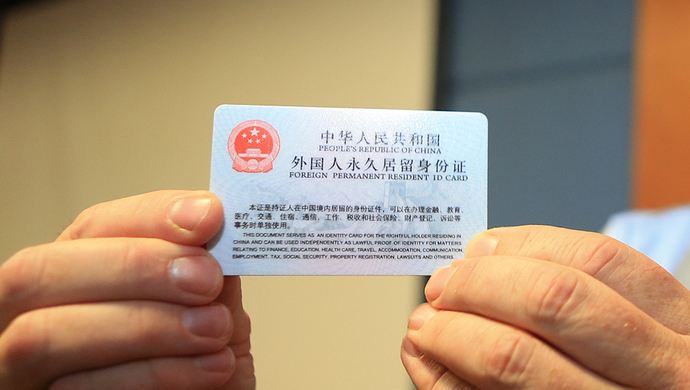
By Ted Salonek | China Jobs Daily

It’s a fascinating phenomenon, people moving to China to seek employment. As China’s economic power grows, it’s become a popular place for foreign professionals to spend the next leg of their careers. Within China’s education sector, there have been shifts in the understanding of how English should be taught. Schools now understand that spoken English is just as important as a student’s writing ability, reading comprehension, and listening comprehension. Now that this has become a part of China’s educational paradigm, well-paying job options for English teachers have cropped up across the country.
In the business sector, China has become a top player in international trade, and has been making advances in aerospace, hi-tech, and robotics. With these new technological developments, China’s industries are acquiring foreign talent in increasing numbers. If you are considering taking your career to China, I’d like to give you an insider’s perspective. I am a former expat who spent nearly five years teaching, working, and living in China. Here are a few observations I have made that might give you a better idea of why China is the place for you to grow professionally:
An article previously published by China Jobs Daily discussed the rising requirements for teachers in China. As time progresses, the requirements for teachers continue to ascend. At the surface, this may not seem like a net positive for job-seeking foreigners. Contrarily, the underlying effects of this increase in minimum requirements will benefit those who meet them. If you step back and take a look at the bigger picture, you’ll notice the possible changes these stringent requirements may have. By utilizing basic trend prediction and analysis along with an understanding of supply and demand, you can easily see that salaries are only going to go up. Even if the compensation packages are not at the top of your current desired salary range, stay tuned, as they are surely climbing.
If you are a person who is looking to start a career abroad, consider China’s job market for qualified foreign teachers. If you are based in China and working before the aforementioned universal rise in salaries, you’ll be part of the first wave of foreigners that will picks through these competitive offers while employers vie for your signature on their employment contracts. Furthermore, having experience in China, knowledge of its culture, and a headstart on your Mandarin proficiency will give you an advantage over jobseekers don’t.

It’s true, certain costs of living (i.e. housing) in the biggest cities of China are comparable to those in the world’s largest, most developed cities, such as New York City. The costs of nearly everything else (i.e. food, transportation, entertainment) is still far lower, even in these large cities. In my personal experience, if you are willing to live and eat like a Chinese person, you’ll be able to stash a nice portion of your income into your savings account or begin chipping away at those pesky student loans.
As an American living in China, there were times where I craved a pizza, a cheeseburger, or a club sandwich. Unless you absolutely love Chinese cuisine and are willing to eat it day in and day out, you’ll likely buckle under the temptation at some point. If you live in the larger cities of China, these foods are readily available. These western dishes are, unfortunately, very expensive. Check out the small, family owned eatery on the corner! They’re serving up single-plate, Chinese homestyle dishes (usually adding up to around $2.50 USD if you include an ice-cold YanJing beer). Also, look out for the delectable Xinjiang noodle restaurants (also generally costing less than $3 USD), and don’t be afraid to try to delicious street cart food! If you eat and live like a Chinese person, you’ll soon notice that your walking-around money goes a lot further than you expected.

It’s no secret that China’s economy is growing, and they are tenaciously working toward becoming the world’s strongest economy in agriculture, manufacturing, and services sectors, while consistently focusing on the hi-tech sector. With China ceaselessly advancing in these industries, jobs in design, engineering, finance, human resources, information technology, marketing, and sales are on the rise. Many expats travel to China to fill teaching roles or study abroad, but end up joining one of China’s many budding and flourishing companies.
If you focus on networking, keep an eye on your local job market, and partner with a well-connected talent agency, you’ll be able to take advantage of China’s progressively diverse job market for foreign professionals. With positions popping up and companies actively hiring foreign talent, you may find yourself taking a position outside of a classroom, if that’s what you’re after. Keep in mind, however, that Mandarin language proficiency is an invaluable asset for a foreigner looking to forward their career in China. This brings us to our final reason:
More people on this planet speak Mandarin Chinese than any other language. Its widely understood and arguably confirmed that China will soon be the most attractive market for investment and international trade. Countries all over the world are collaborating with China in a multitude of business sectors. Mandarin Chinese is the number one language to learn if you want to give yourself a leg-up in the business world. According to the International Monetary Fund (IMF), China has the largest economy by purchasing power parity. Taking the time to develop your Mandarin abilities will pay off in the long run, regardless of if you plan to stay or plan to leave.
Not only will learning Mandarin grant you an advantage in China’s job market, it is a challenging language to learn, and will impress any hiring manager you are speaking with about a potential job. If you are the entrepreneurial type, this may be the most important reason for you to take your career to China. There are many resources available to help you gain fluency in Mandarin Chinese. Check out our recent interview with Luke Callanan from Foreign HR in which he describes how he learned Chinese and how it was his springboard into the next stage of his career.

If you’ve been entertaining the idea of working in China, now is the time to do it. With the rising salaries in the educational job market, the growing abundance of jobs outside of education, the attractively affordable cost of living, and the ability to learn a language which is widely regarded as the business language of the future, there’s no better time to send in some applications. Living and working in China was a great experience for my own professional life, and I believe it will greatly benefit yours. If you are interested in working in China, please reach out to me at ted@foreignhr.com.









 京公网安备 11011202001511号
京公网安备 11011202001511号